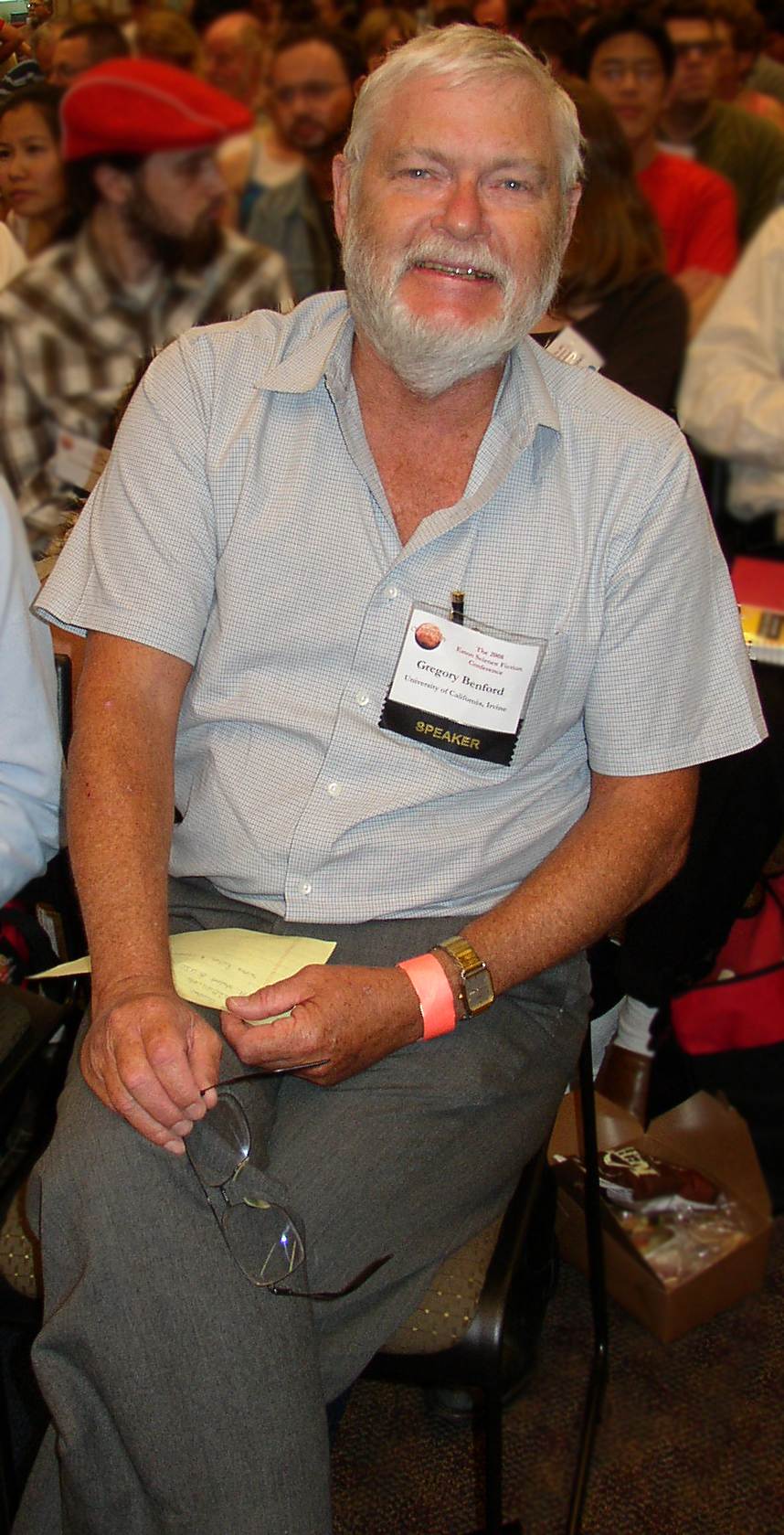Gregory Benford: Cytaty po angielsku
Part 2 “Aleph”, Chapter 3 (p. 68)
Against Infinity (1983)
““Free will again,” Cathy said.
“Or free won’t,” Peterson said mildly.”
Źródło: Timescape (1980), Chapter 23 (p. 291)
“Just because something’s crazy, doesn’t mean it’s wrong.”
Part 5, Chapter 1 (p. 228)
Artifact (1985)
Part 5 “Coming Home”, Chapter 3 (p. 179)
Against Infinity (1983)
“Must admit it felt good. First time in years anybody ever admitted I was right.”
To the Storming Gulf, p. 142
In Alien Flesh (1986)
“Any technology that does not appear magical is insufficiently advanced.”
This is derived from the third of Arthur C. Clarke's three laws : "Any sufficiently advanced technology is indistinguishable from magic." There are other variants which had inverted this including one known as Gehm's corollary http://www-users.cs.york.ac.uk/susan/cyc/l/law.htm, published several years earlier : "Any technology distinguishable from magic is insufficiently advanced." The earliest variant seems to be "Any sufficiently advanced magic is indistinguishable from technology." It has been called "Niven's Law" and attributed to Larry Niven by some, and to Terry Pratchett by others, but without any citation of an original source in either case — the earliest occurrence yet located is an anonymous one in Keystone Folklore (1984) by the Pennsylvania Folklore Society.
Foundation's Fear (1997)
“There’s plenty—”
“Plenty is exactly what there’s none of.”
Part 2 “Aleph”, Chapter 6 (p. 87)
Against Infinity (1983)
Exposures, p. 244
In Alien Flesh (1986)
““The peers just fill the air with their speeches.”
“And from what I've seen, vice versa.””
Źródło: Timescape (1980), Chapter 5 (p. 46)
“Thunder impresses, but it’s lightning does the work.”
Time’s Rub, p. 253 (Originally published in Asimov’s, April 1985)
In Alien Flesh (1986)
Part 6 “Aleph Null”, Chapter 4 (p. 226)
Against Infinity (1983)
“At least being prosperous set one apart in England; here it guaranteed nothing, not even taste.”
Źródło: Timescape (1980), Chapter 11 (p. 134, concerning the USA)
“Modern economics and the welfare state borrowed heavily on the future.”
Źródło: Timescape (1980), Chapter 43 (p. 445)
“There was something about such reflex stupidity that never failed to irritate him.”
Źródło: Timescape (1980), Chapter 17 (p. 231)
Afterword to Exposures, p. 246
In Alien Flesh (1986)
“They will do anything for the worker, except become one.”
Źródło: Timescape (1980), Chapter 5 (p. 46, concerning the peers)
“Maybe is not a theory, you know, it is merely maybe.”
Part 4, Chapter 6 (p. 203)
Artifact (1985)
Part 1 “Beyond Sidon”, Chapter 2 (p. 12)
Against Infinity (1983)
